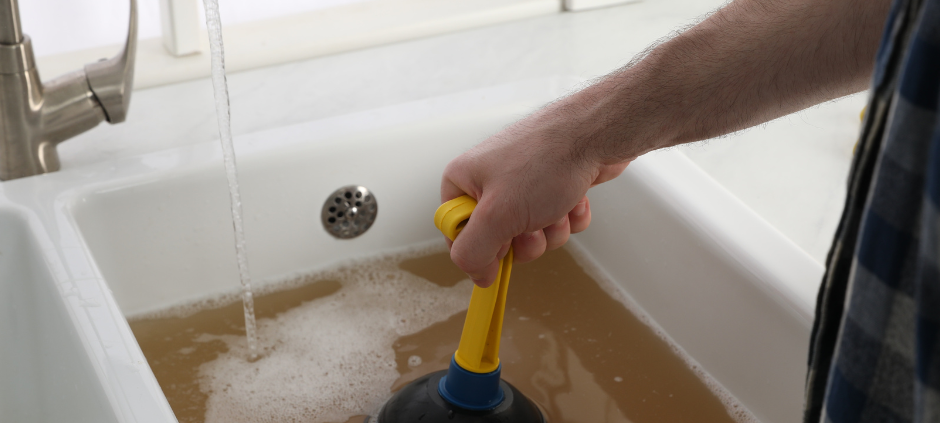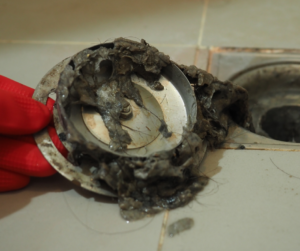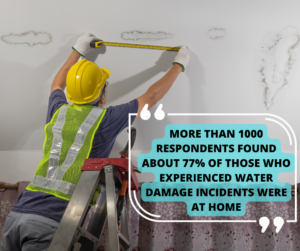Have you ever faced the frustrating ordeal of a clogged drain? Whether it’s a slow-draining sink, a backed-up shower, or a toilet that just won’t flush properly, dealing with clogs can be a major inconvenience for both residential and commercial properties. Fortunately, you don’t have to wait for the next blockage to strike. With a little preventive maintenance and some simple know-how, you can keep your drains running smoothly. In this article, we’ll explore the best practices for maintaining unclogged drains, how to prevent drain blockage and what to do if you have the misfortune of experiencing a blocked drain.
What Causes Drain Clogs?
Before we delve into the best practices for keeping your drains clear, it’s essential to understand what causes clogged drains. Common culprits include:
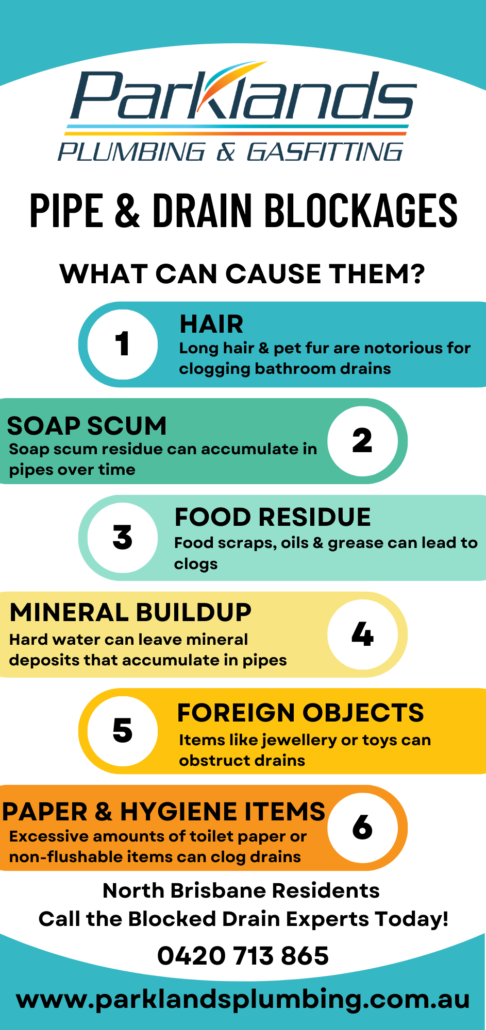
-
- Hair: Long hair and pet fur are notorious for clogging bathroom drains.
-
- Soap Scum: The residue left behind by soap can accumulate in pipes over time.
-
- Food Residue: In the kitchen, food particles, oils, and grease can lead to clogs.
- Mineral Buildup: Hard water can leave behind mineral deposits that accumulate in pipes.
-
- Foreign Objects: Accidentally dropping items like jewellery or toys down the drain can lead to obstructions.
- Toilet Paper and Hygiene Products: Flushing excessive toilet paper or non-flushable items can cause toilet clogs.
How Can You Prevent Drain Clogs?
Prevention is often the best cure when it comes to clogged drains. Here are some best practices to keep your drains flowing freely: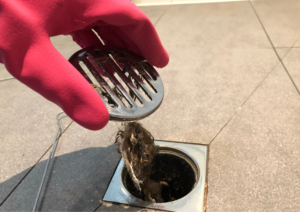
Use Drain Screens: Install drain screens in your sinks and showers to catch hair and debris before they enter the drain.
Dispose of Cooking Oils Properly: Never pour cooking oils and grease down the kitchen sink; instead, collect them in a container and dispose of them in the trash.
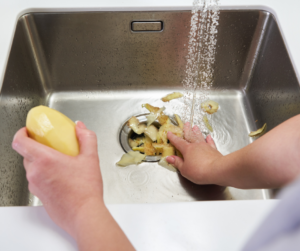
Limit Food Waste: Scrap dishes into the trash can to minimize food scraps entering the kitchen sink.
Avoid Flushing Non-Flushable Items: Make sure only toilet paper and waste are flushed down the toilet.
Regular Maintenance: Periodically inspect and clean your drains to remove any buildup.
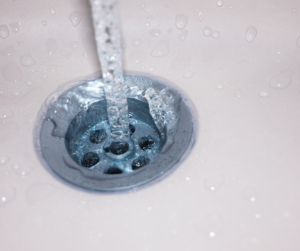
Flush with Hot Water: Run hot water down the drains to help flush away potential clog-causing materials.
Be Mindful of Hard Water: Consider a water softener to reduce mineral buildup in your pipes.
How Can You Clean Drains Naturally?
Sometimes, despite your best efforts, drain clogs can still happen. Before reaching for harsh chemicals, consider natural and eco-friendly cleaning methods: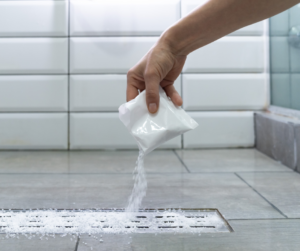
Baking Soda and Vinegar: Pour a mixture of baking soda and vinegar down the drain, followed by hot water. This can help break down clogs and remove odours.
Salt and Boiling Water: A mixture of salt and boiling water can help dissolve grease and soap scum.
Biological Cleaners: Use enzymatic or bacterial drain cleaners that eat away organic matter.
When Should You Call a Professional?
While many minor blocked drains can be resolved with DIY methods, there are situations when it’s best to call a professional plumber:
-
- Severe Clogs: If the clog is stubborn and persistent, professional help may be necessary.
-
- Multiple Clogs: If multiple drains in your home are affected simultaneously, it could indicate a more significant issue in your plumbing system.
-
- Foul Odors: A persistent foul smell from your drains can be a sign of a more severe problem.
-
- Slow Drainage: When water is draining much slower than usual, it could indicate a clog further down the line.
-
- Gurgling or Bubbling: Unusual sounds coming from your drains can be a sign of a blockage or ventilation problem.
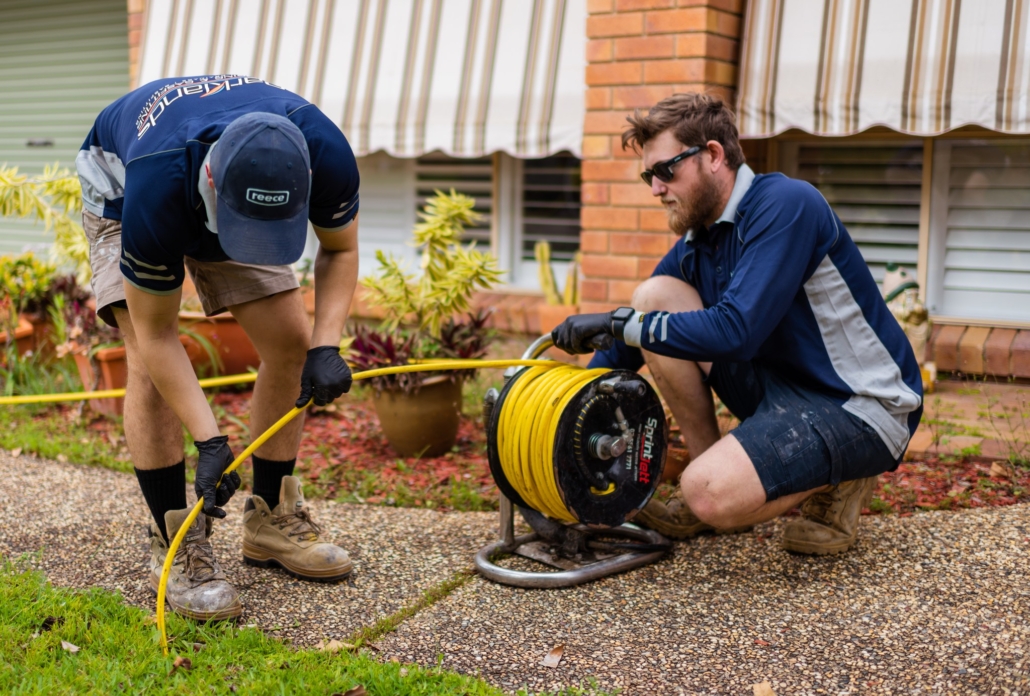
What Are the Best Practices for Specific Drains?
Different drains require specific care to prevent clogs:
Kitchen Sink
- Use a Strainer: Install a sink strainer to catch food scraps and prevent them from entering the drain.
- Run Cold Water: After disposing of cooking oils or grease, run cold water for a few seconds to help congeal any remaining substances.
- Avoid Coffee Grounds: Never rinse coffee grounds down the sink; they can form sludgy clogs.
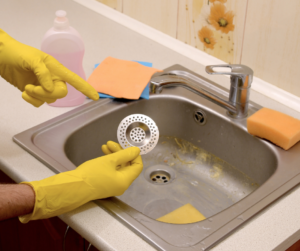
Bathroom Sink and Shower Drains
-
- Use Hair Catchers: Hair catchers or screens are a must for bathroom sinks and showers.
- Wipe Down Surfaces: Regularly wipe down the sink and shower surfaces to remove soap scum.
- Clean the Pop-Up Stopper: The pop-up stopper in your bathroom sink should be removed and cleaned periodically.
Toilet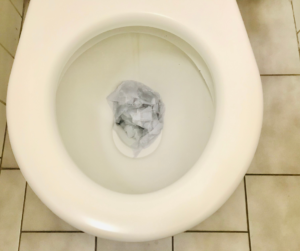
- Avoid Excessive Paper: Don’t use an excessive amount of toilet paper, and avoid flushing non-flushable items.
- Keep the Lid Down: Flushing with the toilet lid down can prevent foreign objects from falling in.
Garbage Disposal
-
- Run Cold Water: Always run cold water while using the garbage disposal to prevent oils and grease from solidifying.
- Avoid Stringy or Starchy Foods: Refrain from disposing of stringy foods like celery and starchy foods like potato peels.
- Regular Maintenance: Periodically clean the disposal with ice cubes and citrus peels to eliminate odours and buildup.
How to Maintain Outdoor Drains?
Outdoor drains, like those in your gutters, are essential for proper drainage. Here’s how to maintain them:
-
- Regular Cleaning: Remove leaves, debris, and any blockages from your gutters and outdoor drains regularly.
- Install Gutter Guards: Gutter guards can help prevent leaves and debris from accumulating in your gutters.
- Inspect for Damage: Check for any damage or blockages in outdoor drains that may affect their functionality.
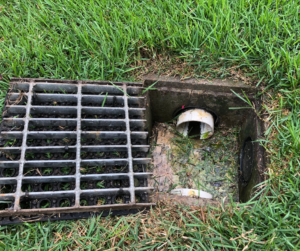
Maintaining unclogged drains is not only a matter of convenience but also a way to prevent costly plumbing problems. By following these best practices, you can keep your drains flowing freely and avoid the hassle of dealing with clogs.
While occasional clogs are nearly inevitable, with proper care and maintenance, you can minimize their frequency and severity. Remember that when you encounter persistent or severe clogs, it’s wise to seek professional help. Don’t wait for a plumbing emergency; be proactive in caring for your drains.
By adhering to these best practices and staying vigilant, you’ll enjoy clear drains, a smoothly running plumbing system, and peace of mind. If you require professional plumbing assistance contact the team from Parklands Plumbing & Gas Fitting today.
This is an original article by Parklands Plumbing Brisbane Northside
Insurance Statistics
QBE says its survey in June of more than 1000 respondents found about 77% of those who experienced water damage incidents were at home.
Internal water damage is surprisingly common, with 58% of respondents having experienced it, know someone who has, or both.
The insurer’s claims data from 2018-2021 shows that 24% of all home insurance claims relate to water damage incidents.
Burst or blocked pipes are the leading cause of water damage, making up 46% of related claims
Statistics Sourced: QBE Insurance News
Frequently Asked Questions
Q: What are the most common causes of drain clogs?
A: The most common causes include hair, grease, food particles, and small objects. People often underestimate how these accumulate over time.
Q: How can homeowners prevent drain clogs?
A: Regular cleaning, avoiding pouring grease down the sink, using drain strainers, and being mindful of what goes down the drain can significantly prevent clogs.
Q: Are chemical drain cleaners recommended for clearing clogs?
A: While they can be effective, I generally advise against them as they can damage pipes over time. Natural alternatives like baking soda and vinegar are safer options.

